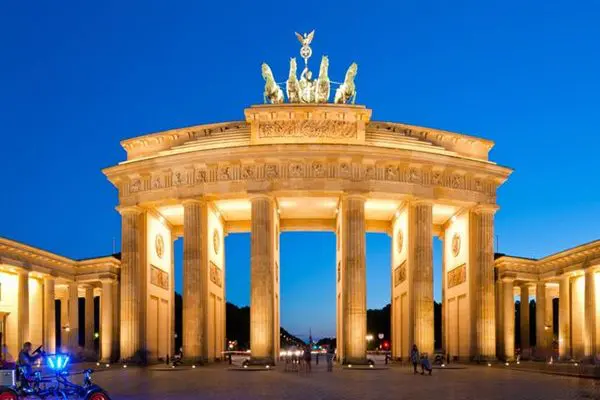Do I need a visa for Britain & Ireland Tours?
When is the best time to visit Britain & Ireland?
What is the internet access like in Britain & Ireland?
Can I use my mobile while in Britain & Ireland?
How much does it cost for…?
Can I drink tap water in Britain & Ireland?
Are credit cards widely accepted in Britain & Ireland?
What is ATM access like in Britain & Ireland?
What currency should I bring?
Do I need to tip in Britain & Ireland?
Do I need a power adapter for my electronic devices?
Are there any safety concerns for tourists in Britain & Ireland?
What are some must-try local dishes in Britain & Ireland?
What are the customs and etiquette tips for visiting Britain & Ireland?
What should I pack for a trip to Britain & Ireland?
Do I need a visa for Britain & Ireland Tours?
Whether you need a visa to visit Britain & Ireland depends on your nationality and the length of your stay.
Citizens from many countries, including the USA, Canada, Australia, New Zealand, and most EU nations, can visit Britain and Ireland for tourism without a visa for up to 6 months. However, you’ll need a valid passport that’s effective for the entire duration of your stay.
If you're from a country that requires a visa, you will need to apply for a Standard Visitor Visa for both Britain and Ireland before your trip.
For the most up-to-date information, check the UK and Irish governments’ official visa and immigration websites, or consult with your local British or Irish embassy or consulate before booking your tour.
When is the best time to visit Britain & Ireland?
The ideal time to visit Great Britain is between late spring and early autumn, from May to September. Spring brings mild weather and blooming flowers, making it a great time for events like the Chelsea Flower Show. Summer offers the warmest temperatures, perfect for festivals and long days, though it can attract larger crowds at popular attractions. Autumn, with its colorful foliage, provides a quieter experience for exploring the countryside and attending local harvest festivals. Winter, though colder (0°C to 8°C/32°F to 46°F), has its own charm with festive lights and Christmas markets.
In Ireland, the best time to visit is also from late spring to early autumn, particularly May to September. Spring brings fresh greenery and mild weather, making it ideal for outdoor activities and exploring Ireland's stunning landscapes. Summer offers the longest days and pleasant weather for coastal drives and sightseeing, though popular tourist spots can be busier. Autumn, with its rich fall colors, offers a quieter and more relaxed experience for touring the countryside.
What is the internet access like in Britain & Ireland?
In both Great Britain and Ireland, internet access is generally reliable and widely available. Urban areas benefit from high-speed broadband, and most hotels, cafés, and restaurants offer free Wi-Fi. In Great Britain, major mobile providers offer extensive 4G coverage and increasingly widespread 5G in larger cities and towns. If you're planning to use mobile data, check with your service provider about international roaming options or consider purchasing a local SIM card for more affordable access. Whether you're exploring busy cities or the peaceful countryside, staying connected shouldn't be a problem.
Can I use my mobile while in Britain & Ireland?
You can use your mobile phone in both Great Britain and Ireland, but it's important to consider a few factors. Check with your provider regarding international roaming charges and ensure your phone is unlocked if you plan to use a local SIM card. Many providers offer competitive roaming packages for travel in these regions, allowing you to use your existing plan without excessive fees. Alternatively, purchasing a local SIM card upon arrival is a cost-effective option for data and calls.
How much does it cost for…?
Here's a quick overview of basic costs in Britain & Ireland:
- Meals: An inexpensive meal at a restaurant ranges from £10-£20, while a three-course meal for two can cost between £40-£70. Quick snacks are usually around £5-£10.
- Public Transport: Single bus or tube tickets cost £1.50-£5, with day passes ranging from £10-£15.
- Attractions: Some are free, but places like the Tower of London may cost around £30.
- Groceries: Basic items like milk cost about £1 per litre, bread around £1.20, and a dozen eggs £2.
- Coffee: Expect to pay between £2.50-£4 per cup.
Can I drink tap water in Britain & Ireland?
Yes, tap water in both Britain and Ireland is safe to drink and of high quality. In most areas, the water is treated and regularly tested to meet health and safety standards. Restaurants, hotels, and public places will often offer tap water when requested, so feel free to refill your bottles during your trip!
Are credit cards widely accepted in Britain & Ireland?
Yes, credit cards are widely accepted in both Britain and Ireland. Most businesses, including restaurants, hotels, shops, and attractions, accept major credit cards like Visa, Mastercard, and American Express. Contactless payments are also very common. However, it's always a good idea to carry some cash, especially when visiting smaller towns or rural areas, where certain establishments may only accept cash.
What is ATM access like in Britain & Ireland?
ATM access in Britain and Ireland is generally very good, with ATMs widely available in urban areas, towns, and even many rural locations. Most ATMs accept major international cards, allowing you to withdraw cash in the local currency (British Pounds in Britain and Euro in Ireland). Additionally, ATMs typically offer instructions in multiple languages, making them user-friendly for tourists. However, it's advisable to check with your bank regarding any foreign transaction fees or withdrawal limits before your trip.
What currency should I bring?
When traveling to Britain and Ireland, it's important to know that each country uses a different currency. In Britain, the currency is the British Pound Sterling (£), while in Ireland, the currency is the Euro (€).
For your trip, it's advisable to bring some cash in both currencies for small purchases, tips, or places that may not accept cards. However, credit and debit cards are widely accepted in both countries, making it convenient to use cards for most transactions. Additionally, ATMs are plentiful, allowing you to withdraw cash as needed in the local currency. Be sure to inform your bank of your travel plans to avoid any issues with card usage abroad.
Do I need to tip in Britain & Ireland?
Britain: In restaurants, it's customary to leave a tip of around 10-15% if service is not included in your bill. For taxis, rounding up to the nearest pound or adding 10% is common. In pubs, it’s less common to tip, but you can leave change for bar staff if you wish.
Ireland: Similar to Britain, a tip of about 10-15% is standard in restaurants if service is not included. For taxis, rounding up to the nearest euro or adding a small amount is appreciated. In pubs, it’s typical to leave change or buy a drink for the staff as a gesture of thanks.
Do I need a power adapter for my electronic devices?
Yes, you will need a power adapter for your electronic devices when traveling to Britain and Ireland. Both regions use Type G electrical sockets, which have three rectangular prongs. The standard voltage is 230V, and the frequency is 50Hz.
If your devices are not compatible with this type of socket or the voltage, consider bringing a universal travel adapter or purchasing one upon arrival. Additionally, check your device specifications to ensure it can handle the voltage; most modern chargers are dual voltage, but it's always best to verify.
Are there any safety concerns for tourists in Britain & Ireland?
Britain and Ireland are generally considered safe for tourists, with low crime rates compared to many other countries. However, like any travel destination, it's important to stay aware of your surroundings and take basic safety precautions.
Petty crimes, such as pickpocketing and bag snatching, can occur in crowded tourist areas, public transport, and busy streets. It’s advisable to keep your belongings secure and avoid displaying valuable items openly.
What are some must-try local dishes in Britain & Ireland?
When visiting Britain and Ireland, there are several must-try local dishes that highlight the regions' culinary heritage. Indulge in classic fish and chips, enjoy a hearty full English breakfast, or savor comforting shepherd's pie and bangers and mash. Don't miss Irish stew, a flavorful mix of lamb or beef with vegetables, and the sweet delight of scones with clotted cream and jam. Explore traditional dishes like coddle, colcannon, and the distinctive haggis. Finally, try black and white pudding, a popular type of blood sausage often enjoyed as part of a full breakfast. These dishes offer a delicious glimpse into the rich flavors of Britain and Ireland!
What are the customs and etiquette tips for visiting Britain & Ireland?
When visiting Britain and Ireland, it's important to respect local customs and etiquette to enhance your experience. Greet with a firm handshake and use titles and surnames until invited to use first names. Queueing is taken seriously, so always wait your turn. Tipping is customary in restaurants (around 10-15% if service isn’t included) and rounding up taxi fares is appreciated, while tipping in pubs is less common. Punctuality is valued, and being late is considered disrespectful. Engage in small talk about safe topics like the weather, and wait for everyone to be served before starting your meal. Keep your hands on the table (but not elbows), and maintain an appropriate distance during conversations. Lastly, keep noise levels down in public places and avoid overly boisterous behavior to show respect for the local culture.
What should I pack for a trip to Britain & Ireland?
When packing for a trip to Britain and Ireland, consider the unpredictable weather and the diverse activities you'll encounter. Bring layers, including t-shirts, long-sleeved shirts, and a warm jumper or sweater, as well as a waterproof jacket and a sturdy umbrella for those rainy days. Comfortable walking shoes are essential for exploring cities and countryside alike. Don't forget a power adapter for your electronics, as the UK uses a different plug type (Type G). Additionally, include a small daypack for daily excursions, and if you plan to visit religious sites, pack modest clothing to respect local customs. Lastly, consider bringing a reusable water bottle to stay hydrated while reducing waste during your travels.
 February Sale; 2 For 1
February Sale; 2 For 1  Croatia Sailing : 2 For 1
Croatia Sailing : 2 For 1 Asia Tours : 2 For 1
Asia Tours : 2 For 1 Central & Eastern Europe Tours: 2 For 1
Central & Eastern Europe Tours: 2 For 1  Why Travel Talk
Why Travel Talk Travel Talk Blog
Travel Talk Blog Responsible Travel
Responsible Travel Fair Travels with Travel Talk
Fair Travels with Travel Talk
















